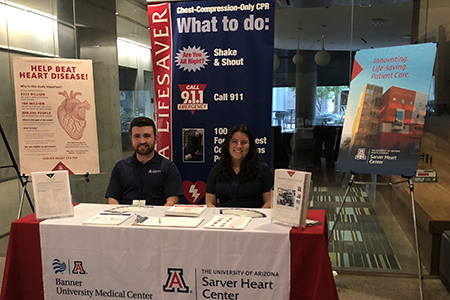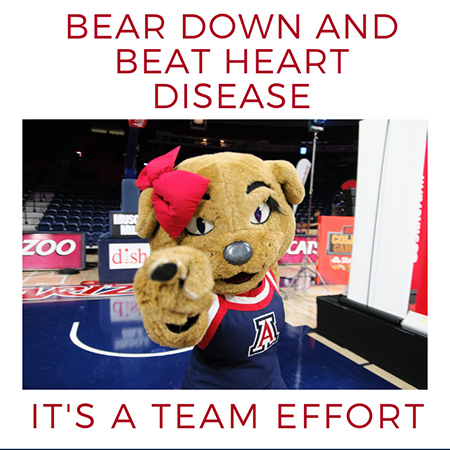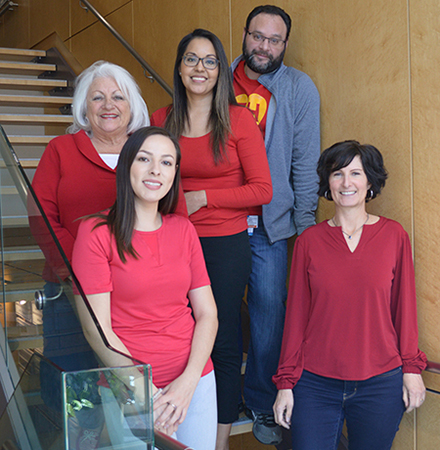The Sarver Heart Center Biorepository has close to 300 participants
The Sarver Heart Center Biorepository is up and running! Will you, your family, team, church or synagogue be the next participants? It won’t take much – just three tablespoons of your blood, about the amount taken during a standard blood draw. This small amount will help us ask bigger questions and get better answers as we move toward a future free of heart disease and stroke. You don’t have to have heart disease to be part of this big venture. You just need to be at least 18 years old.
"The biorepository will enable physicians and basic scientists to access biological samples in a range of people with and without different heart diseases. This resource will support our efforts in precision medicine, with the goal of improved understanding of how heart disease develops. It will also support our efforts in health disparities as we strive to learn how heart and vascular conditions affect groups of people differently. Providing Sarver Heart Center investigators access to such a resource, and the resulting work will improve our ability to diagnose and treat heart diseases in the future,” said Nancy K. Sweitzer, MD, PhD, Director of the UA Sarver Heart Center, Chief of Cardiology and Professor of Medicine in the UA College of Medicine – Tucson. Dr. Sweitzer leads this clinical research project focused on building a cardiac biorepository at the UA, one of only a handful of universities in the U.S. with a biorepository dedicated to heart disease research.
To be part of the Sarver Heart Center Biorepository, please complete a Cardiology Research Registry form. Completing this simple one-page form allows our staff to contact you about the Sarver Heart Center Biorepository in addition to other ongoing studies. This webpage includes information about other clinical research studies at the Sarver Heart Center.
To participate in the Sarver Heart Center Biorepository, you’ll be asked to:
- Complete a health questionnaire.
- Sign an informed consent form that allows researchers to view your electronic medical record.
- Donate about three tablespoons of blood. These blood samples will help scientists better understand heart disease to improve care and treatment now and in the future. Specifically, the blood will be used for future studies of genes, proteins, and other cellular mediators of heart disease.
“While heart disease remains the leading killer of people in the United States, deaths have declined in recent years, mostly for white men, the population that has been studied the most. Heart disease is a significant issue for women and minority groups such as Latinos and African Americans. It’s clear that our current strategies may not be equally effective in all these groups – we just don’t know. Much research still needs to be done,” added Dr. Sweitzer.
If you have questions, please email Lizzette Cruz, MS, RN, at Marquez@shc.arizona.edu or call 520-626-5431.
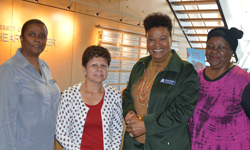
Cheryl Alli, Shirley Cox, Wanda Moore, and Murryelle Bothwell decided to participate in the Sarver Heart Center Biorepository.
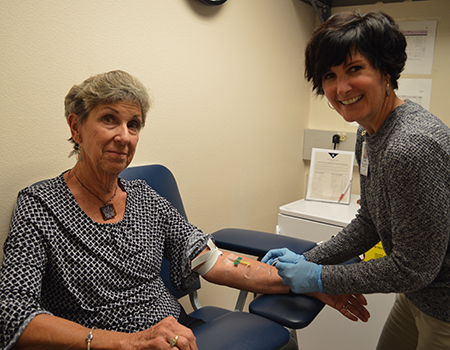
Nancy Ermoian supports UA Sarver Heart Center as a community volunteer. She also decided to participate in the Biorepository. (Pictured with Cindy Schrag, clinical research coordinator.)
Members of Sarver Heart Center's Clinical Research Team
